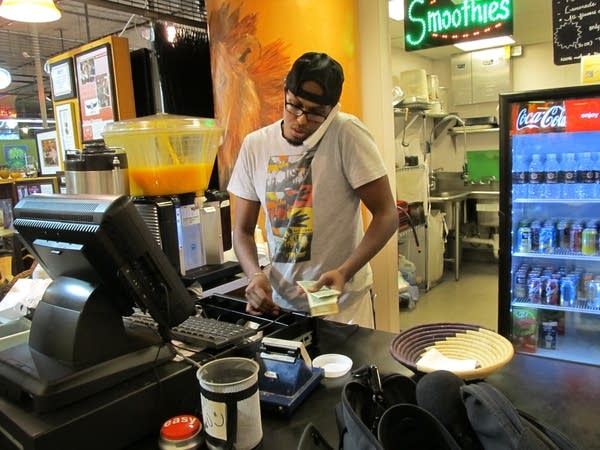Threatened cuts to federal grants trouble Mpls. officials

Some Minneapolis city officials are concerned that the bipartisan supercommittee's failure to reach an agreement will lead to deep cuts in a grant program that funds projects in underdeveloped parts of the city.
Minneapolis Mayor R.T. Rybak said the Community Development Block Grants are odd because usually when the city gets money from the federal government, the dollars are targeted for something members of Congress are interested in funding.
"But the beauty of some programs, like Community Development Block Grants, is that they really say 'hey we trust those of you in local communities to know what you need better than we know in Washington,'" Rybak said.
The money comes from the Department of Housing and Urban Development and does come with at least one major string attached. The funds must be spent in 23 Minneapolis neighborhoods with high numbers of low-income residents and underdeveloped land. Rybak said the city has used the grant money for a variety of projects.
Create a More Connected Minnesota
MPR News is your trusted resource for the news you need. With your support, MPR News brings accessible, courageous journalism and authentic conversation to everyone - free of paywalls and barriers. Your gift makes a difference.
"Some of them are used for affordable housing," he said. "Some for our youth violence prevention work that dramatically has reduced crime."
Rybak said block grants also pay for youth employment and job training programs. He said these help get city residents out of poverty and into the workplace, which benefits the whole city.
Perhaps the most visible use of block grant funds is the former Sears building, now known as the Midtown Exchange building, which towers more than 200 feet above Lake Street.

On the main floor, more than 50 local businesses — many of them food-based — make up the Midtown Global Market.
"This was really the outgrowth of the local business community saying they did not want a Fortune 500 retailer in this space," said Mike Christenson, the head of the city's Community Planning and Economic Development department. "Rather they wanted a community-based immigrant-focused food court and grocery resource."
The Global Market offers a veritable United Nations of flavors with food from countries in Africa, the Caribbean, East Asia, the Middle East and Latin America.
Christenson said $3 million in block grants were used to build housing in the upper floors of the Midtown Exchange building and provide low-interest loans to Global Market business owners. He said most of the nearly $200 million development was funded by private sources.
The federal government has cut block grant funding nearly in half over the last 20 years, Christenson said. He said in the 1990s, the city received about $20 million a year in block grants. This year, the city received $12 million.
He worries about further reductions, with all the talk about deficit reduction in Washington D.C. Christenson said the neighborhoods that need the funds the most will be hardest hit.
"You will notice when federal funds are cut, because they're lifelines for opportunity into those neighborhoods," he said. "They help housing, they help create jobs and they create business opportunities like the 54 you see around here at the Global Market."

But Community Development Block Grants are not popular with some Congressional House Republicans. Last month, Republican members of the House Financial Services Committee asked the supercommittee to make significant cuts to the block grant program.
In a letter to committee co-chairs, Republicans wrote, "the combination of generous funding and lax oversight has led to wasteful spending, often on frivolous pork barrel projects."
MPR News tried to reach Republican members of the Minnesota delegation for comment, but they were not available in time for this story.
If the stalemate over deficit reduction triggers a series of across-the-board spending cuts starting in 2013, it's unclear how deeply the block grant program will be cut.
